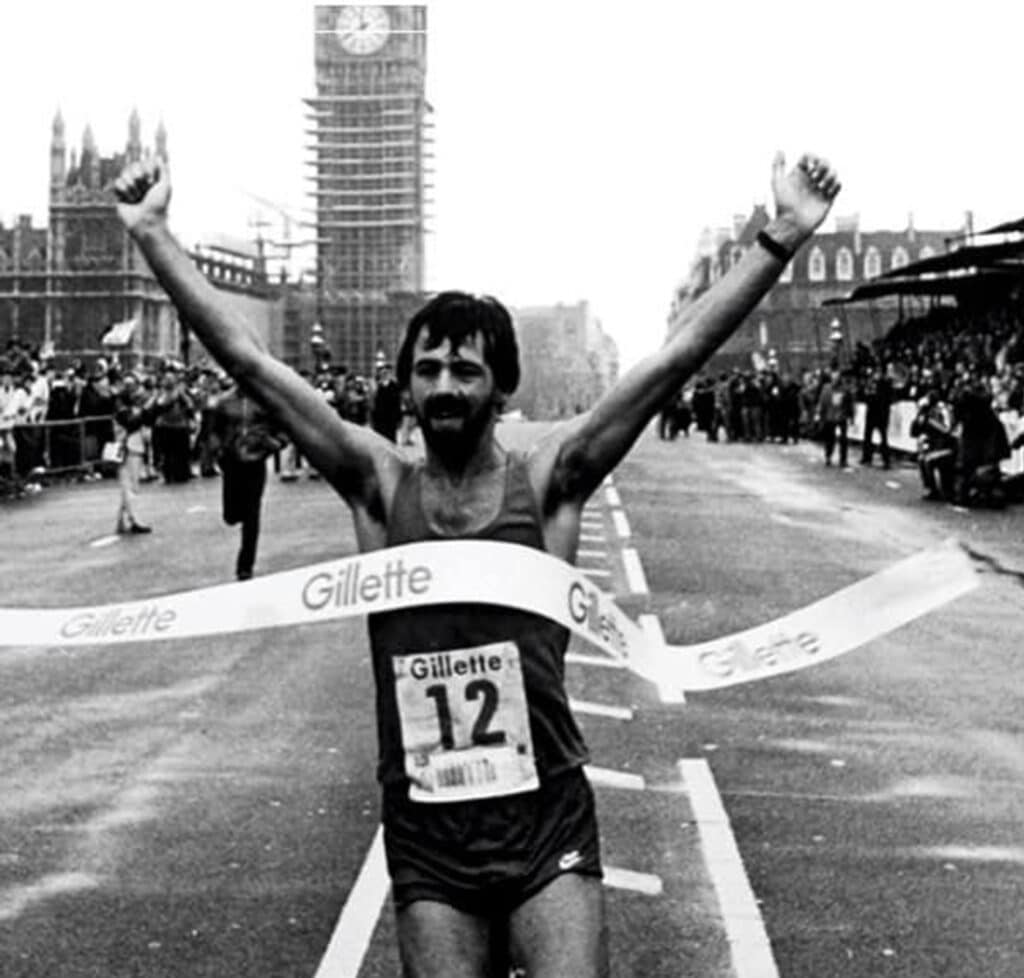


Welcome to our Coach the Run’s elite marathon training plan. If you are looking to take your running to the next level and compete in an elite marathon, then this is the perfect guide for you. In this advanced marathon training plan, we will cover everything from nutrition and hydration strategies to specific workout routines designed to help you reach peak performance on race day. So let’s get started.
Before diving into our advanced marathon training plan, it is important to assess your current fitness level and set realistic goals. This will help you tailor the plan to your specific needs and avoid injury.
Firstly, make sure you have a solid base of running at least 30-40 miles per week before starting this training plan. If you are not quite there yet, consider beginning with our intermediate marathon training plan to build up your mileage.
Secondly, set a specific time goal for your race and break it down into smaller goals for each mile or kilometre. This will give you a clear focus and help you stay motivated throughout the training programme.
To succeed in an elite marathon, a strong mentality is just as important as physical fitness. As you progress through this training programme, focus on building mental toughness and developing a positive mindset.
One way to do this is by visualising yourself crossing the finish line of your goal race. This can help you stay motivated during tough workouts and give you a sense of accomplishment as you see yourself getting closer to your goal.
As mentioned before, having a solid running base is crucial for success in an elite marathon. This means consistently running at least 30-40 miles per week for several months leading up to starting this advanced marathon training plan.
If you are not quite at this level yet, focus on building your mileage gradually and listening to your body along the way.
Our elite marathon training plan is a 19-week programme designed to help you reach your peak performance on race day.
Each week will consist of a mix of easy runs, tempo runs, long runs, and speed work. The intensity and distance of each workout will gradually increase as you progress through the plan, helping you build endurance and speed.
In addition to running workouts, cross-train and include strength training exercises to help improve overall fitness and prevent injury.
Our comprehensive 19-week elite marathon training programme, authored by our head running coach Mike Gratton, stands as a testament to his expertise. This meticulously curated marathon training schedule draws from Mike Gratton’s personal training diary during the years leading up to his victory in the 1983 London Marathon, where he clocked an impressive finish time of 2 hours and 9 minutes. As a distinguished former Commonwealth athlete and London Marathon champion, Mike’s wealth of experience and knowledge enrich this training regimen.
Whether you are aiming for a podium finish or a personal best, this training plan will give you the tools and support you need to succeed.
This elite marathon training plan is designed for advanced runners who have a solid base of running and are looking to compete in an elite marathon. It is not recommended for beginners or those with limited running experience.
This elite marathon training plan is 19 weeks in length, with a gradual build-up of intensity and distance over the course of the programme. This allows for proper training and recovery to help you reach peak performance on race day. The duration may vary depending on when your goal race falls, but it is recommended to start the plan at least 20 weeks before your race date to allow for any unexpected setbacks or extra time for recovery.
To achieve peak performance in an elite marathon, consistency is key. This training plan consists of 7 days of running per week but you can adjust it to fit your schedule. If you feel overly fatigued or are experiencing any pain, it is recommended to take a day off to recover.
This elite marathon training plan is transcribed from Mike Gratton’s daily training diary kept in 1982/83. His marathon training started in 1979, and it took many years to achieve this volume and intensity combination.
The elite training plan serves as a blueprint to review the running volume and types that Mike undertook and deemed necessary to achieve a sub-2hr 10min marathon time.
Each week of the elite marathon training plan will consist of a variety of running workouts, including easy runs, tempo runs, long runs, and speed work. These workouts will gradually increase in intensity and distance as you progress through the plan.
Easy run: These are done at a comfortable same pace to build base mileage and endurance. This easy pace should be at least 60-90 seconds slower than your target marathon pace.
Pace run: These involve running at your goal marathon pace for specific distances or intervals to help you get used to running at a consistent speed.
Hill runs: Running on hills helps improve strength and power in your legs, preparing you for the challenges of an elite marathon course.
Long run: As the name suggests, these runs will be the longest of the week, gradually increasing in distance as you progress through the plan. These long runs are crucial for building endurance and getting your body used to running longer distances.
Speed work: These workouts will involve shorter intervals of fast running with periods of rest in between. This will help improve speed and overall race performance.
Interval training: These are short, high-intensity efforts with rest periods in between. This type of interval training helps improve speed and endurance by pushing your body to work at a higher intensity.
Tempo run: Also known as threshold runs, these are sustained efforts at a challenging but manageable pace. These workouts help train your body to maintain a faster pace for longer periods of time.
I’ve missed a week of the plan, what should I do?
If you have missed a week of the elite marathon training plan, it is important not to cram all the missed workouts into one week. This can lead to injury or burnout.
Instead, adjust your schedule accordingly and continue with the following week’s workouts. You may need to modify some of the distances or intensity if necessary.

If you are an experienced runner with a solid base of running, and you want to compete in an elite marathon, then this training plan is perfect for you. This plan is designed by our head running coach and London Marathon winner, Mike Gratton, who has personal experience and expertise in training for and winning an elite marathon.
Additionally, this training plan can be personalised to fit your specific goals and needs. Our team at Coach the Run can provide customisation options and individualised coaching to help you reach your full potential on race day.
In addition to a well-designed training plan, proper nutrition and hydration are crucial for success in an elite marathon. As your body endures long distances and intense workouts, it is important to fuel it with the right nutrients and fluids.
Some key strategies to keep in mind include:
Don’t miss the chance to train like a top athlete and achieve your marathon aspirations. Download our elite marathon training plan, meticulously crafted by our expert coach and London Marathon victor, Mike Gratton. This plan is tailored for experienced runners and is your key to achieving your desired marathon finishing time. Derived from Mike Gratton’s personal training log leading up to his triumph in the 1983 London Marathon, where he achieved an impressive finish time of 2 hours and 9 minutes. Mike, a distinguished former Commonwealth athlete and London Marathon champion, infuses this regimen with his wealth of experience and expertise.
With a structured training schedule and personalised coaching options available, there is no better way to prepare for an elite marathon than with Coach the Run. So why wait? Sign up now and start your journey towards becoming an elite marathon runner. Remember, it’s never too late to chase your dreams and make your mark in the world of running. So push yourself and see you at the finish line!
Want a slightly slower marathon challenge? Take a read of our 4 hour pace marathon blog.

We sat down with Mike Gratton, our head running coach and London Marathon winner, to answer some commonly asked questions about his elite marathon training plan.
Q: You said you took two years to build up to the elite plan. How did you stay injury-free when you are pretty much running every day?
I ran twice every day, including most Sundays from my college days and built up to this level over several years. I did weight training twice a week but not much in the way of stretching. I think my low knee lift helped as I think I had a low-impact running style.
Q: Did you ever cross-train?
Just weight training.
Q: How slow were your long runs?
20 to 22 miles on Sunday, 13 to 15 miles on a Wednesday.
Q: How much threshold training did you do in a week?
Not much. Mostly relied on regular racing over shorter distances, like cross-country leagues and relays to fulfil that part of my training. I did marathon pace at the end of long runs as the marathon got closer, but seldom ran deliberately at marathon race pace.
Q: How many prep events did you do in the year leading up to your London win?
I expect about 40. A lot of cross country and relays, a few 10-mile and 13.1-mile races. That calendar year included London 1982 (April), AAA Championships (June, dropped out with blisters), Commonwealth Games (Oct) and London 1983 (Apr).
Q: What would your advice be for a sub 2:40, to make the step towards sub 2:30?
Gradually build volume.
Q: Any other tips?
Don’t ignore speed work, it counterbalances the long-running slower than race pace. About 20% of the volume would be intervals or repetitions at a one-mile to 10km pace.
Join our mailing list to stay up to date with the latest UK running events, training tips, and exclusive offers on running products. Rest assured, we value your privacy and would never dream of selling your address. Sign up now…
Share this article
Wondering “how fast should I be running?” The answer depends on your fitness level, running...
The benefits of our 24-week marathon training plan Look no further if you’re looking for...
Hi Mike, the 4-hour mark feels like both a mental and physical barrier. What strategies...
I’m in my mid-40s and enjoy the challenge of the marathons. I keep hearing about...
As a runner, you’re probably familiar with the importance of staying hydrated and fueling your...
Trying to figure out the pace you need to maintain for your next marathon? A...
We’re here to make sure you’re up-to-date with the latest running tips, events and product discounts – we’ve always got your back! Rest assured, we value your privacy and would never dream of selling your address.
BONUS: Sign up today and receive a FREE code for our Sub-4-Hour Marathon Plan
Your privacy settings
Manage Consent Preferences
Necessary
Analytics
Embedded Videos
Marketing
Facebook Advanced Matching
Facebook CAPI